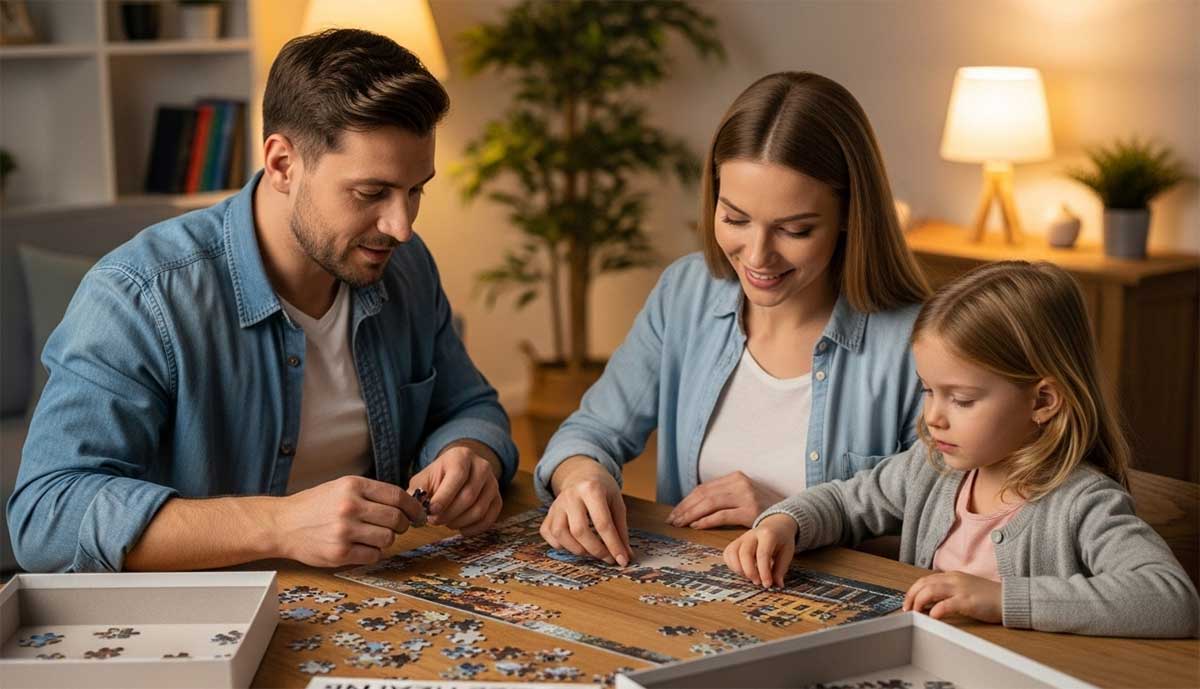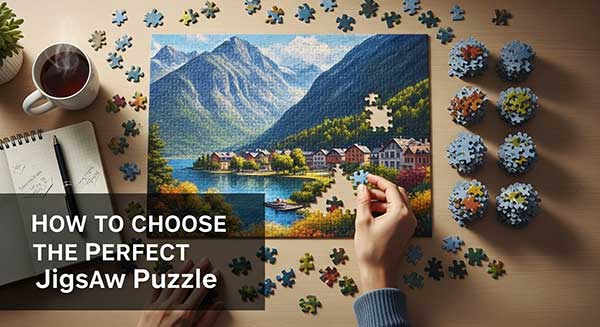Puzzles are more than just a relaxing hobby for quiet evenings or family time. They’re an effective brain workout that helps improve memory, focus, spatial thinking, and even reduce stress. Psychologists and neuroscientists have long confirmed that assembling puzzles stimulates both hemispheres of the brain - the analytical and the creative one.
In our digital age, when it’s harder than ever to stay focused, solving online or traditional puzzles can become a great “gym for the mind.” Whether you prefer a classic jigsaw set or an online puzzle, each piece you fit into place sharpens your mind and calms your thoughts.
How Puzzles Stimulate the Brain
When you work on a puzzle, both sides of your brain are actively engaged:
- The left hemisphere handles logic, analysis, and organization.
- The right hemisphere is responsible for intuition, creativity, and overall perception.
By connecting pieces into a complete image, your brain learns to think both logically and creatively at the same time. This improves cognitive flexibility and helps you switch more easily between different types of tasks.
Improving Memory and Attention to Detail
As you search for the right puzzle piece, your brain memorizes shapes, colors, and patterns. This activates short-term visual memory and gradually enhances your ability to notice details in daily life.
Studies show that people who regularly solve puzzles have better concentration, visual memory, and spatial awareness - skills that come in handy while driving or navigating unfamiliar places.

Reducing Stress and Boosting Mood
When solving puzzles, your brain releases dopamine - the “feel-good” hormone. It enhances mood, motivation, and creates a sense of calm. The process is much like meditation: you focus on a single task, detach from everyday worries, and enter a state of “flow.” That’s why puzzles are often recommended as an anti-stress therapy or a way to “unwind” after a long day.
Benefits for Children and Teens
For kids, puzzles are an educational game that develops:
- logical thinking;
- patience and persistence;
- fine motor skills;
- visual and spatial perception.
Regular puzzle-solving helps children learn to plan their steps, see the bigger picture, and achieve results through gradual progress. For teenagers, puzzles can become a healthy alternative to gadgets, helping improve focus, structured thinking, and task completion skills.
Benefits for Adults and Seniors
Puzzles are an excellent way to maintain mental activity at any age. Neurological studies show that regular puzzle-solving can lower the risk of age-related cognitive decline and may slow down conditions such as dementia or Alzheimer’s disease. The brain, like muscles, needs exercise - and puzzles are one of the most enjoyable forms of mental training.
Enhancing Social Interaction
Puzzles aren’t just for solo play - they can be enjoyed with family or friends. Shared puzzle sessions encourage communication, trust, and teamwork. Research shows that even short group puzzle-solving activities can lift spirits and strengthen social bonds.
Online Puzzles - Fun with Benefits
You no longer need a physical puzzle set to enjoy these advantages. Online puzzles offer the same mental benefits in a convenient, digital format:
- choose your difficulty level;
- play solo or with friends;
- explore themes from nature to art.
These digital puzzles combine accessibility and brain benefits, making mental development engaging and modern.
How to Make Puzzles Part of Your Daily Routine
To get the best results:
- spend at least 15-20 minutes a day solving puzzles;
- choose images and themes that inspire you - it boosts motivation;
- try puzzles of varying difficulty to keep challenging your brain;
- play in a calm environment, free from distractions.

